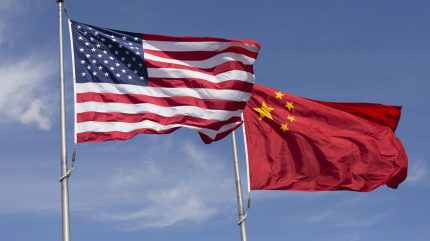
The American Clean Power Association (ACP) has approved the Biden Administration’s decision to impose Section 301 tariffs on lithium-ion batteries imported into the US from China, doubling the tariff rate to 50%.
The tariffs will be imposed on Chinese imports such as semiconductors, batteries, EVs and solar cells, and will come into effect between 2024 and 2026.
Jason Grumet, ACP chief executive, said: “Today’s decision recognises the value of battery energy storage and its importance to the reliability of our electric grid. As energy demand grows, battery energy storage is lowering costs for American families and businesses… and bringing thousands of jobs to communities across the US.
“Newly enacted tax credits for energy storage, along with US Department of Energy programmes supporting the ramp-up of domestic manufacturing, will continue to be critical to America’s energy dominance,” he added.
However, according to energy analysts, Biden’s announcement could lead to fragmentation and increasing costs in global supply chains.
Peter Sand, chief analyst at Norwegian market analytics platform Xeneta, said: “The new tariffs under President Biden may be a case of history repeating. If so, businesses will be braced for increasing supply chain costs and ultimately it will be US consumers who pay for it.
“Back in 2018, we saw the US under President Trump impose a wide raft of tariffs on Chinese imports. China retaliated by imposing increasing tariffs of its own and this constant trading of blows saw ocean freight container shipping rates from China to the US West Coast increase by more than 160%,” he explained.
The tariffs could also lead to strong reverberations, owing to China’s commanding position in the global supply chains for semiconductors and batteries.
Speaking at the Resourcing Tomorrow 2023 mining conference in London, Michal Meidan, director at the Oxford Institute for Energy Studies, said: “China’s industrial policies to develop these technologies are decades old and the nation has developed an expansive global presence in the entire value chain of extraction of the ores overseas.
“If you look at the supply chains, whether it is EVs or batteries, there is a strong China component throughout them. This is in extraction and obviously processing, where China has 80–100% control of some processing supply chains.”



